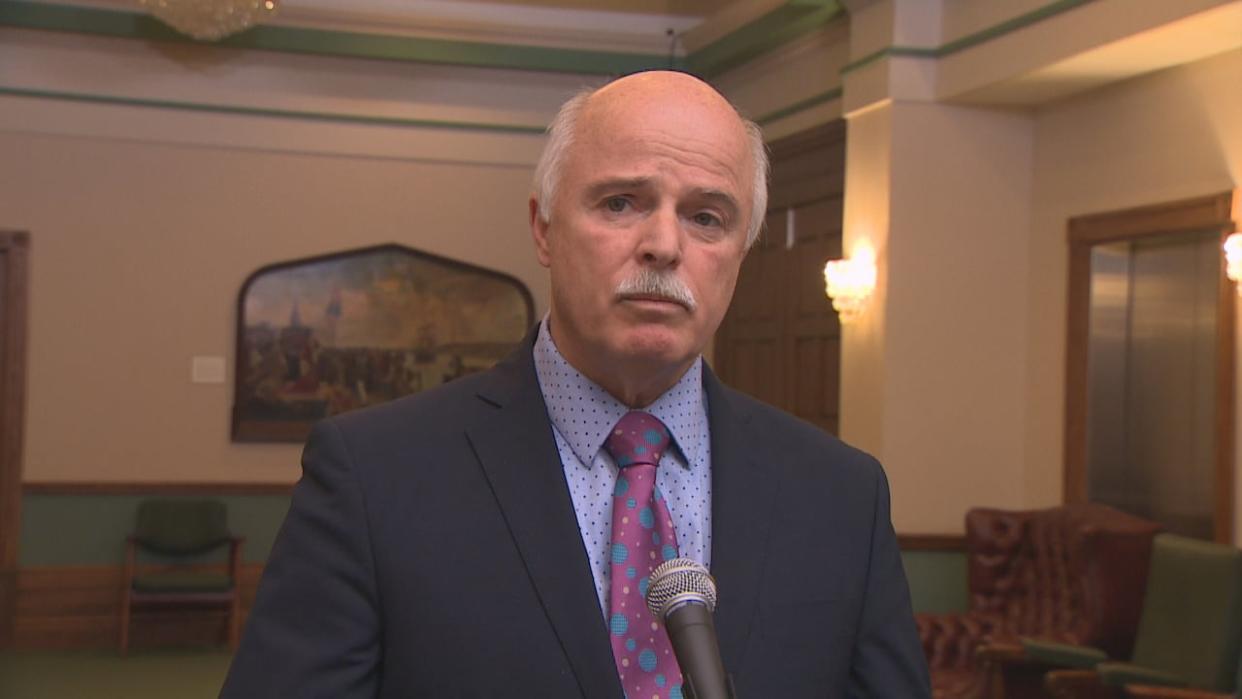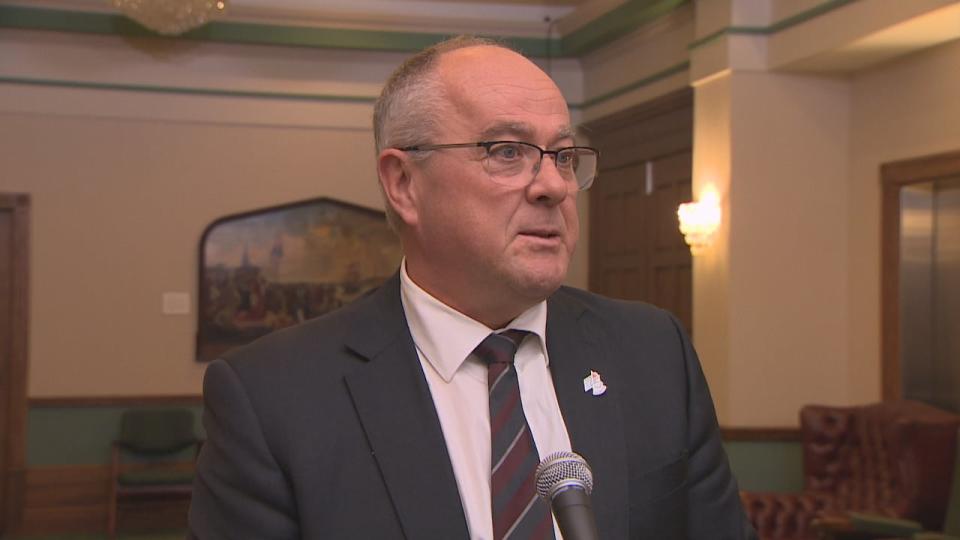The PCs want nurse practitioners paid through MCP. The health minister says that's privatization


Health Minister Tom Osborne said the provincial government is against the idea of paying nurse practitioners through the province's Medical Care Program (MCP), saying it's an example of health-care privatization. (Mark Quinn/CBC)
The health minister says the Progressive Conservatives are advocating for private health care, after health critic Barry Petten called for nurse practitioners to be paid through the province's Medical Care Plan (MCP).
Petten spoke on the topic in the House of Assembly on Monday, saying the move to pay nurse practitioners in the same way as family physicians would allow for more care options in communities that need a doctor.
In response, Health Minister Tom Osborne told the House it sounded like Petten was calling for privatized health care.
"I notice the member is very focused on private health care with nurse practitioners," Osborne said. "Is he just as interested in private health care as the Alberta government is in that?
Petten responded by calling the comment a "low shot".
Osborne spoke with reporters after question period saying the province is only interested in the public health system.
"What we are interested in is following the plan that's in place, the Health Accord," Osborne said. "The Health Accord calls for interdisciplinary teams, family care teams throughout the province that are public clinics, operated and run by public health-care professionals paid for and supported by the provincial health authority."
Osborne told reporters the province was against the idea of paying practitioners through MCP, saying they have plans to use more nurse practitioners in family care teams as part of the Health Accord.
He said paying them through MCP would essentially turn them into business owners as private practitioners like a family doctor, and take away the ability of the department to move practitioners where they're needed.
"If we even thought about going a different route and allowing private practice … we would find it very challenging to support the family care teams and the public system. You would have people leave to go into private practice as opposed to supporting the public system," he said.
Osborne said there are also challenges with the current MCP model, and that adding more burden to it wouldn't be the answer.

PC health critic Barry Petten said Osborne's argument goes against giving people the most care options available. (Mark Quinn/CBC)
Speaking with reporters outside the House of Assembly, Petten said Osborne's argument takes away available options for communities in need of health care. He believes nurse practitioners should be given the choice to be paid through MCP.
"It's a low hanging fruit, and I'm not sure why the minister or his government don't act on it," he said.
"Why can't they bill government directly, no different than a family doctor does? So when you go to a nurse practitioner for a medical appointment, they can bill government just like your family doctor does. There is no privatization there unless you are saying that our family doctors are privatized."
Petten said residents of the province don't win waiting for the plans of the Health Accord to unfold — and that people need access to health care now.
Download our free CBC News app to sign up for push alerts for CBC Newfoundland and Labrador. Click here to visit our landing page.

